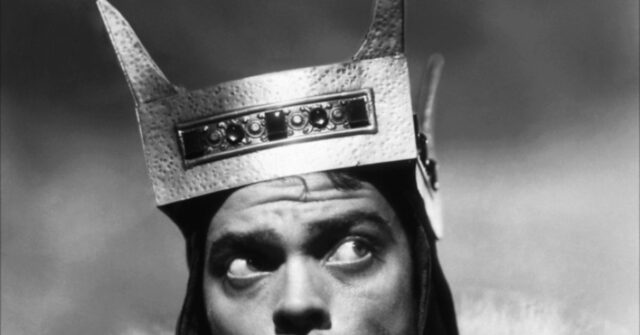William Shakespeare’s Macbeth has been accused by an academic hosted by the Globe Theatre of being “racialised” with references to “darkness”.
In the latest instalment of ‘Anti-Racist Shakespeare’ webinars hosted by the Bard’s Globe Theatre in London, assistant professor of English at Trinity University in Texas Kathryn Vomero Santos declared that the language in Macbeth demonstrates the alleged racial bias of the 17th century playwright.
According to comments reported by the Daily Mail, Vomero Santos claimed in the discussion that the use of words such as bat, beetle, black, and night could be seen as examples of “racialised” language in the play that examines the corrupting nature of power.
Pointing to a scene in which the lead character is referred to as “black Macbeth”, the American academic reportedly said: “I think that it’s important to help our students to see the ways in which a play we might not recognise immediately as a ‘race play’ is relying on racialised language and playing on the dichotomy of whiteness and blackness and dark and light.”
The professor was backed up by playwright Migdalia Cruz, who said of the use of words such as Jew, Moor, and Turk within the play: “A lot of people cut those things and I thought, I am not going to make him not a racist, he is a racist – but a racist of his time. Everyone in his time were racists.”
Et Tu? Shakespeare’s Globe Theatre Adds Trigger Warning to Julius Caesarhttps://t.co/61umE2ElZn
— Breitbart London (@BreitbartLondon) May 25, 2022
In 2018, Cruz produced a “translation” of Macbeth for the Oregon Shakespeare Festival as a part of a series of interpretations meant to “present the Bard’s work in language accessible to modern audiences.”
Kathryn Vomero Santos, for her part, helped curate a collection of “retellings of Shakespeare’s works by Latino and Indigenous writers that place the stories in settings more familiar to” those from the border regions between the United States and Mexico.
The latest woke attacks on Shakespeare have been criticised by some British academics, including emeritus professor of sociology at Kent University Frank Furedi, who said: “I think all the comments suffer from the condition of what I call moral anachronism, which involves reading history backwards and projecting on to the past the obsessions of the contemporary writer – in this case, with race and blackness.”
England in the Age of Shakespeare author and historian Jeremy Black added: “The idea of blackness as evil and the cover for crime draws on longstanding fears of the dark and should not be confused with racism.”
Responding, the Globe Theatre’s director of education Farah Karim-Coope said: “We support the scholars and artists who speak on our platforms. While we may not agree with everything they say, we trust our audiences the way Shakespeare did – to judge for themselves.”
Shakespeare’s Globe Theatre ‘Decolonising the Plays of Shakespeare’ https://t.co/5EM2C3NNoq
— Breitbart London (@BreitbartLondon) May 18, 2021


